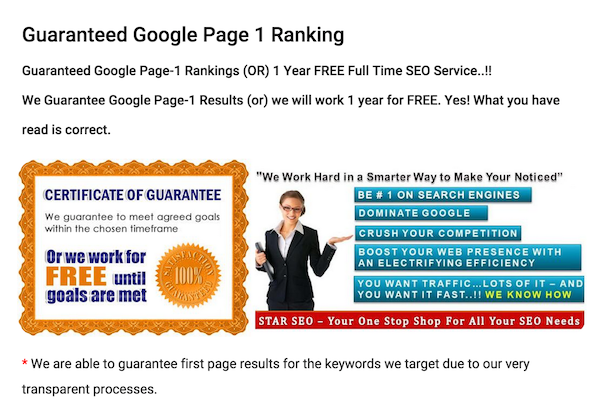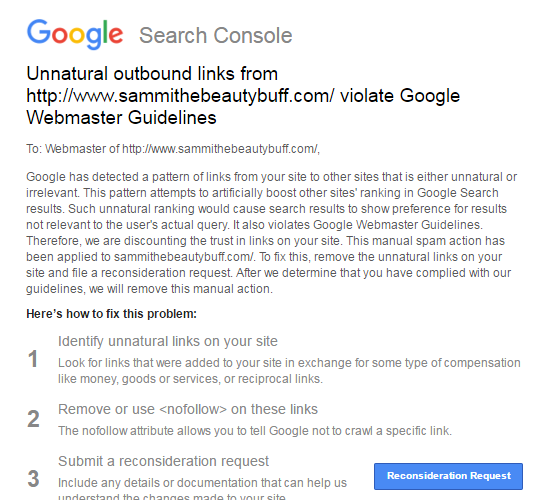Easy SEO Tips for Small Businesses
1. Set up a Google My Business account
Set this up and get all of your business details uploaded. It’s totally free and will enable you to appear in local search results for queries specific to your area of operation.
Even broad queries with large volumes are now showing local results which is something small business owners can capitalize upon.

2. Build a fast, mobile-friendly website
Developing mobile sites can now be done easily with simple plugins for your CMS, such as WordPress, meaning that making all of your content mobile-friendly can be done quickly and cheaply.
Optimizing it for fast load-speed (again through plugins where available) will help you stand out from the competition in terms of performance.
3. Conduct extensive keyword research to identify gaps in the market
Targeting the same keywords as your bigger competitors won’t see you make much ground as they are more established and have more coverage online.
Using keyword research tools such as Google’s Keyword Planner to spot gaps in the market will enable you to capitalise upon these – they may even convert at a better rate too.
4. Start using Google Search Console
It’s a free tool that gives a wealth of information about your website’s performance in Google search, as well as any errors on your site and issues you should address.
Improving your website without Search Console is like running a marathon without any shoes on. With Search Console you can find out what keywords Google thinks your website is relevant for, whether there are problems crawling your website, if your site is mobile friendly, and much more. It’s the starting point for most of your improvement efforts.
5. You need to understand your online audience through and through
Who is your typical online customer? What are they looking for? How do they spend their time online? What kind of content do they like to consume?
When you completely understand your audience, you will understand what you need to do online to grab their attention.
If your audience spends a lot of time on Facebook, you should focus effort there. If your audience reads online tutorials about topics relevant to your niche, maybe you need to produce your own tutorial content.
Without a thorough understanding of your audience’s needs and requirements, you won’t be able to make effective use of the online channels at your disposal – you’ll just be trying out different things at random, and that’s a terrible waste of your precious resources.
6. Look at how search engines are displaying results in your niche
Too often, small businesses have no idea who or what they are actually competing with in search.
For example, if you want to focus on a keyword that has a lot of huge international companies ranking on the first page, you should realise that perhaps your expectations need to be tempered.
Another example: if search engines show a lot of images or videos in their results for keywords you want to be visible for, you should consider producing that sort of content rather than just focus purely on text.
Also, often search engines will show local business results – if that’s the case, your efforts need to be adjusted to focus on achieving visibility in those types of results.

7. Get ScreamingFrog and check your site for possible onsite issues
Watch for security issues too – Sucuri site check is free and while it won’t be able to see all possible issues it can catch some of the most widespread ones.
This may seem unrelated to the topic of this article but compromised sites do lose their traffic and visibility.
8. Claim your physical address on Google Maps
If it’s a local business which a physical location and offline customers, make sure you claim your physical address on Google Maps.
9. Whatever you do, be genuine
Hiring somebody on the cheap to run your Twitter account or build links for you may seem like a tempting idea but it can – and probably will – backfire.
If you haven’t got much of a marketing budget, take one step at a time but do it yourself as nobody knows your business and your customers better than you. Connect with them personally, do not count on somebody else spamming them on your behalf resulting in any positive outcome.
10. Beware of agencies that promise the earth
Unless you’re prepared to buy PPC ads, then there is no way to guarantee a page one listing (even then it can be tricky on competitive terms).
If an agency or salesperson promises you this, ignore them. They’re lying and will likely do a lot of damage to your long-term search visibility.
Also, if you’re just getting started, you don’t necessarily need an agency to improve your SEO efforts. See what you can do yourself first.
11. If you do hire an agency, keep an eye on them
Agencies using the wrong methods can do a lot of damage.
Often by dodgy link-building which may achieve some short-term results but will expose your site to the risk of penalties long-term.
12. Keep up with industry news
Things can change fairy quickly in SEO, so things that work for a while can become against Google’s rules over time.
As with the recent penalties for bloggers reviewing products, Google will rarely spell things out. It will give advice and hints, but it won’t contact you. You’ll often only know you’ve done something ‘wrong’ when you login to Google Search Console and receive a notice like this:




0 comments:
Post a Comment